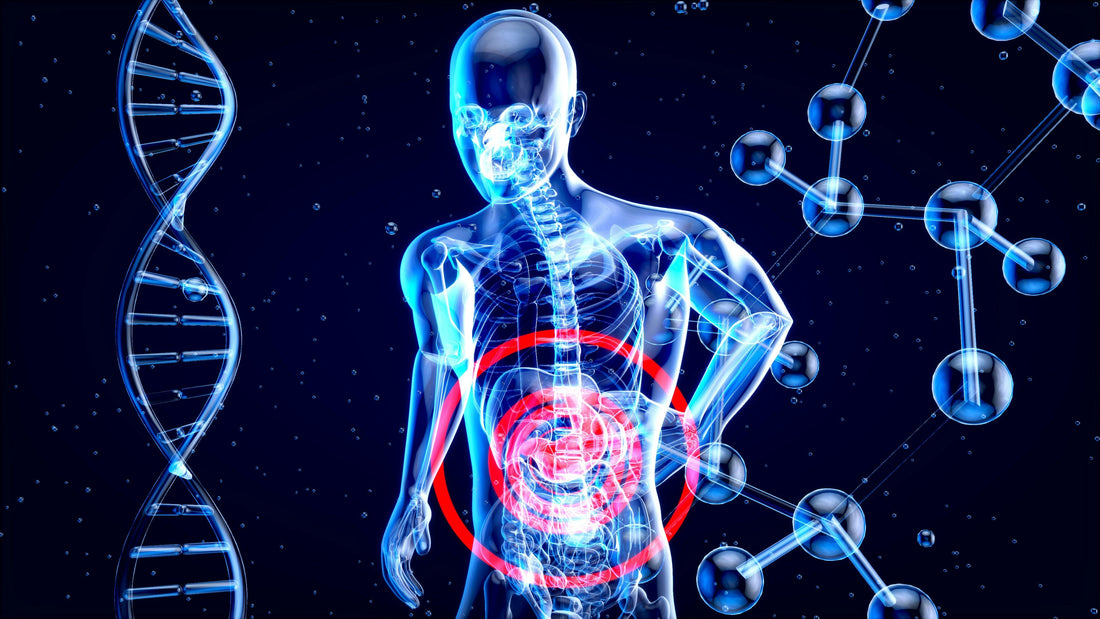
The Role of Probiotics in Digestive Health and Overall Wellness
Share
In the modern wellness landscape, few topics have gained as much attention as gut health. Scientific studies and wellness experts alike emphasize that the digestive system plays a critical role not only in how our bodies process food but also in immunity, mental clarity, and overall vitality. One of the most effective tools in maintaining a balanced digestive system is the use of probiotics—living microorganisms that, when consumed in adequate amounts, provide health benefits.
This comprehensive guide will explore how probiotics support digestive health, the connection between gut health and the immune system, the mental wellness benefits linked to probiotics, and practical ways to integrate probiotic-rich foods and supplements into your wellness routine.
What Are Probiotics?
Probiotics are living bacteria and yeasts that support the body’s natural microbiome. While many people associate bacteria with illness, probiotics represent “good bacteria” that restore balance in the digestive tract. The human gut is home to trillions of microorganisms, including both beneficial and harmful bacteria. A healthy gut maintains the right ratio of these organisms, allowing the body to function efficiently.
The most well-known probiotic strains belong to the Lactobacillus and Bifidobacterium families. Different strains have unique benefits, such as reducing diarrhea, improving nutrient absorption, or alleviating symptoms of irritable bowel syndrome (IBS).
Why Gut Health Matters
The gut does far more than break down food—it acts as a control center for multiple body systems:
-
Digestion and Nutrient Absorption – A healthy gut ensures your body can extract vitamins, minerals, and energy from food.
-
Immune Support – Roughly 70% of the immune system resides in the digestive tract. A balanced gut microbiome strengthens immunity.
-
Mental Health – The gut communicates directly with the brain via the gut-brain axis. An imbalance in gut bacteria can contribute to mood disorders like anxiety and depression.
-
Inflammation Control – A well-regulated microbiome reduces systemic inflammation, lowering risks of chronic diseases.
Because of this, probiotics aren’t just a digestive aid—they’re an essential part of total body wellness.
Digestive Benefits of Probiotics
Probiotics support digestive health in several key ways:
-
Alleviating Diarrhea: Probiotics can reduce the severity and duration of infectious diarrhea and prevent antibiotic-associated diarrhea.
-
Easing Irritable Bowel Syndrome (IBS): Research shows probiotics may reduce bloating, abdominal pain, and irregular bowel movements.
-
Enhancing Nutrient Absorption: Certain probiotics improve the absorption of vitamins such as B12 and minerals like calcium and iron.
-
Restoring Balance: After illness, poor diet, or antibiotic use, probiotics help restore balance by replenishing beneficial bacteria.
Probiotics and Immune Function
One of the most powerful aspects of probiotics is their role in immunity. A healthy microbiome acts as a barrier against pathogens, preventing harmful bacteria from multiplying. Probiotics also regulate the immune response, ensuring the body doesn’t overreact with excessive inflammation.
For example, studies show that children taking probiotics experience fewer respiratory infections, and adults benefit from faster recovery times when sick. Regular probiotic intake can also reduce seasonal allergies and autoimmune flare-ups.
The Gut-Brain Connection: Probiotics and Mental Wellness
Emerging research reveals a fascinating link between probiotics and mental health. The gut produces neurotransmitters like serotonin and dopamine, which directly affect mood and cognitive function.
-
Reduced Anxiety and Stress: Some probiotic strains reduce cortisol levels, the stress hormone, leading to a calmer mental state.
-
Improved Mood: A balanced gut can boost serotonin production, improving overall happiness and emotional well-being.
-
Sharper Focus: Probiotics may reduce brain fog and improve clarity, enhancing productivity and focus.
For individuals struggling with anxiety or mild depression, probiotics can complement lifestyle changes like exercise and meditation.
Probiotic Foods vs. Supplements
When it comes to getting probiotics, you have two primary options: whole foods and supplements.
Probiotic-Rich Foods
Natural probiotic foods are an excellent way to enhance gut health:
-
Yogurt: Contains live cultures like Lactobacillus.
-
Kefir: A fermented milk drink packed with diverse probiotic strains.
-
Sauerkraut and Kimchi: Fermented vegetables that promote gut health.
-
Miso and Tempeh: Fermented soy-based foods rich in probiotics.
-
Kombucha: Fermented tea that supports digestion.
Probiotic Supplements
Supplements are convenient and provide higher concentrations of specific strains. Look for supplements that:
-
Contain multiple strains (diverse microbiome support).
-
Provide at least 10 billion CFUs (colony-forming units).
-
Have delayed-release capsules to ensure bacteria reach the intestines alive.
Both food and supplements play an important role. If your diet lacks fermented foods, a high-quality supplement can fill the gap.
Choosing the Right Probiotic Supplement
Not all probiotics are created equal. When shopping for a supplement, consider:
-
Strain Specificity – Choose strains proven to address your health concerns (e.g., Lactobacillus rhamnosus GG for diarrhea).
-
CFU Count – Higher counts are not always better. The ideal range is usually 5–20 billion CFUs.
-
Shelf Stability – Some probiotics require refrigeration, while others are shelf-stable. Choose what fits your lifestyle.
-
Added Prebiotics – Prebiotics (fiber that feeds probiotics) help probiotics thrive. Supplements containing both are highly effective.
Practical Tips for Daily Probiotic Use
-
Consistency is Key: Take probiotics daily to maintain results.
-
Pair with Prebiotics: Eat fiber-rich foods like bananas, garlic, and oats to feed healthy bacteria.
-
Stay Hydrated: Water supports digestive function and probiotic activity.
-
Avoid Excess Sugar: Sugar fuels harmful bacteria, which can counteract probiotic benefits.
Conclusion: Probiotics as a Wellness Essential
Probiotics are far more than a trend—they’re an integral part of long-term wellness. From improving digestion and immunity to boosting mental health, these beneficial microorganisms are vital for creating balance within the body.
Whether you choose to incorporate probiotic-rich foods into your diet or rely on supplements, the key is consistency. Over time, your digestive system, immune function, and overall vitality will thank you.
By prioritizing gut health, you invest in the foundation of your wellness. Probiotics are not just about digestion—they’re about building a healthier, more resilient body and mind for years to come.